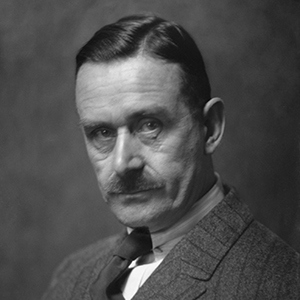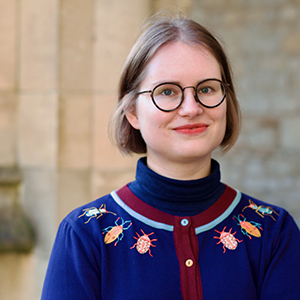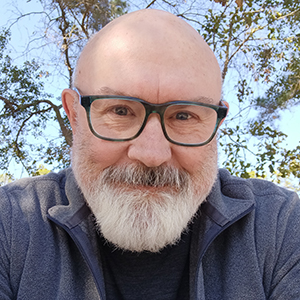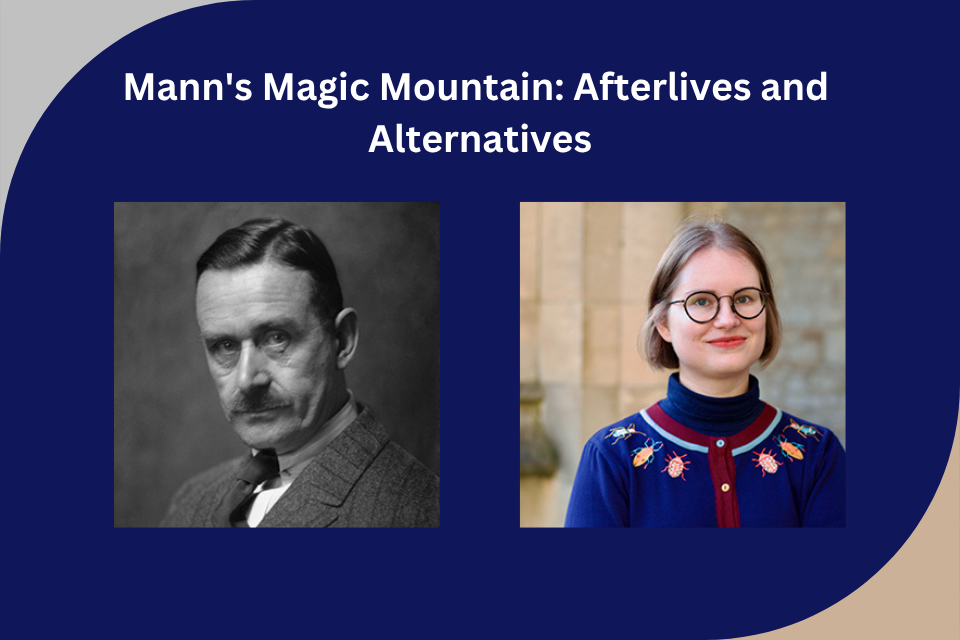Mann's Magic Mountain: Afterlives and Alternatives
About the Event
 This talk will show how Thomas Mann's landmark German modernist novel "Der Zauberberg" ("The Magic Mountain", 1924) has developed something of a cult following among non-academic readers around the world over the course of the past century. Moving from interwar Germany and Soviet Russia to present-day Hollywood and Japan, it will analyse how and why various readers - from tuberculosis sufferers to prisoners of war and beyond - made Mann's book their own. Presenting a case study in a cluster of issues central to the interrelated fields of transnational German studies, comparative literature, and reception theory, the talk will discuss the global circulation of German modernism, popular afterlives of a canonical work, access to cultural participation, relationship between so-called 'high-brow' and 'low-brow' culture, and the limitations of traditional academic reading practices.
This talk will show how Thomas Mann's landmark German modernist novel "Der Zauberberg" ("The Magic Mountain", 1924) has developed something of a cult following among non-academic readers around the world over the course of the past century. Moving from interwar Germany and Soviet Russia to present-day Hollywood and Japan, it will analyse how and why various readers - from tuberculosis sufferers to prisoners of war and beyond - made Mann's book their own. Presenting a case study in a cluster of issues central to the interrelated fields of transnational German studies, comparative literature, and reception theory, the talk will discuss the global circulation of German modernism, popular afterlives of a canonical work, access to cultural participation, relationship between so-called 'high-brow' and 'low-brow' culture, and the limitations of traditional academic reading practices. About the Speaker
 Dr. Karolina Watroba is a Lecturer in German Studies at the University of Edinburgh in the UK. Previously she was a Fellow of All Souls College at the University of Oxford and a Fellow at the Swedish Collegium for Advanced Study in Uppsala. She researches modern literature, film, and culture, specialising in European modernism and its global reception and continuing relevance today. She works across several languages, including German, Polish, Spanish, Swedish, and Korean. She is the author of "Mann's Magic Mountain: World Literature and Closer Reading" (Oxford: OUP, 2022), which was a Waterloo Centre for German Studies Book Prize finalist, and "Metamorphoses: In Search of Franz Kafka" (London: Profile, 2024), which was an "Economist" Book of the Year. Her research has won many prizes and awards, including from the American Comparative Literature Association and the British Academy.
Dr. Karolina Watroba is a Lecturer in German Studies at the University of Edinburgh in the UK. Previously she was a Fellow of All Souls College at the University of Oxford and a Fellow at the Swedish Collegium for Advanced Study in Uppsala. She researches modern literature, film, and culture, specialising in European modernism and its global reception and continuing relevance today. She works across several languages, including German, Polish, Spanish, Swedish, and Korean. She is the author of "Mann's Magic Mountain: World Literature and Closer Reading" (Oxford: OUP, 2022), which was a Waterloo Centre for German Studies Book Prize finalist, and "Metamorphoses: In Search of Franz Kafka" (London: Profile, 2024), which was an "Economist" Book of the Year. Her research has won many prizes and awards, including from the American Comparative Literature Association and the British Academy. Steve Dowden is a Professor of German at Brandeis and chairs its Department of German, Russian, and Asian Languages and Literatures. He also directs its program in European Cultural Studies.
Steve Dowden is a Professor of German at Brandeis and chairs its Department of German, Russian, and Asian Languages and Literatures. He also directs its program in European Cultural Studies.
